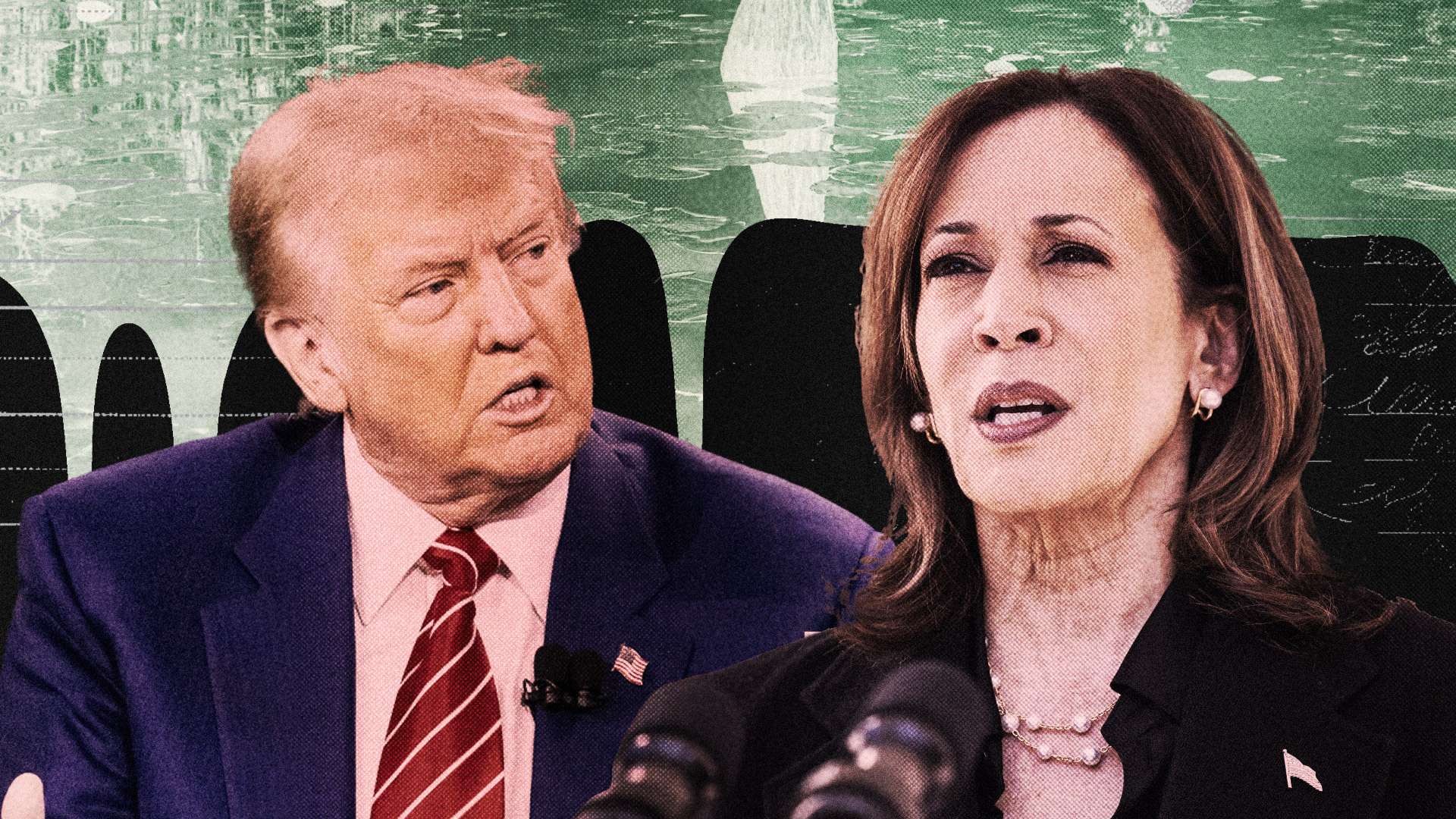Neither Trump Nor Harris Aims to Drain the Swamp; They Want You to Join It.
Donald Trump’s 2016 presidential campaign slogan, “drain the swamp,” resonated deeply with voters disillusioned by the entrenched interests and systemic corruption prevalent in Washington, D.C. The promise suggested a radical clearing out of the self-serving practices and rent-seeking behaviors that define political operations, where well-connected businesses receive subsidies, tax breaks, and protections at the expense of the broader public. This dissatisfaction stemmed from the perception that politicians were more invested in personal gain and power than the needs of ordinary Americans, especially as the revolving door between government positions and lobbyist roles blurred lines between service and self-interest. Fast forward eight years, and both Trump’s and Vice President Kamala Harris’ campaigns signal a shift away from the initial promise of draining the swamp, suggesting instead that more players should join that toxic pool.
The original intent behind “draining the swamp” was to eradicate government-granted favors that often reward the very few while leaving the average citizen to bear the financial burden. Numerous scandals, like those involving Boeing or Solyndra, highlight the consequences of political cronyism, where government subsidies are funneled into projects that may not need them, driving taxpayer costs up without delivering expected benefits. While Trump’s tenure saw tariffs that disproportionately fell on American consumers—masked as protection for domestic industries—Biden’s administration has escalated corporate welfare through massive legislative undertakings. The mere fact that both political parties have now made peace with the notion of corporate welfare underscores that the swamp thrives, no longer only an issue of the past but a foundational part of the current political landscape.
As both presidential contenders vie for support, their platforms have increasingly embraced a form of political favoritism that contradicts the promise to drain the swamp. Trump’s recent campaign pledges—such as cutting taxes for specific groups, including Social Security recipients and the police—demonstrate a shift towards targeted benefits rather than sweeping reforms aimed at economic growth. In a similar vein, Harris’s promises focus on forgivable loans for minority entrepreneurs, regulatory oversight for cryptocurrency, and tax credits catering to select demographics like first-time homeowners and working mothers. These proposals, while framed as beneficial to key constituencies, ultimately highlight an undeniable truth: those not included in these groups are left to confront higher tax liabilities as the favors bestowed on the favored few balloon public debt and necessitate increased taxes in the future.
The consequences of this targeted political approach extend far beyond the realm of personal finances. As both campaigns circulate promises of economic relief through taxpayer-funded benefits, inflation remains an ever-looming threat, exacerbated by the large influx of government spending. The fiscal irresponsibility of prioritizing handouts invites inflationary pressures that significantly diminish the purchasing power of the average consumer. Consequently, everyday expenses, from groceries to housing, can become more burdensome, deepening the struggle for those already facing economic uncertainty. Additionally, both candidates keenly capitalize on public disdain for certain sectors, with Harris shouting across the aisle at grocery retailers and Trump targeting foreign imports—each attributing blame for the financial hardship felt by many Americans.
Adding to the precariousness of this political environment is the ramifications of scapegoating sectors considered responsible for the nation’s economic woes. Harris’s focus on taxing the wealthy primarily impacts innovators and employers who drive economic growth, potentially stifling entrepreneurship and job creation. Concurrently, Trump’s campaign rhetoric, especially in regard to tariffs, exemplifies a strategy that effectively punishes consumers under the guise of protectionism. His promises of deportations and a strict stance on immigration further complicate the narrative around labor markets, as many immigrants contribute significantly to various sectors without inciting social unrest, revealing a misunderstanding of the economic roles they play.
Ultimately, both candidates seem to be more inclined to perpetuate rather than address the systemic issues embedded within Washington. They appear to favor extending privileges to targeted groups rather than committing to a holistic approach that eliminates corporate welfare and political cronyism entirely. Trump’s original intent to “drain the swamp” captured the frustration of voters seeking accountability from their leaders for the self-serving practices that dominate contemporary politics. However, the evolution of this pledge—shifting towards inclusion in the swamp rather than its eradication—signals a continuation of the very issues that fueled public disenchantment. It is a sobering reminder that genuine change may require more than just political slogans; it demands actionable reforms, commitment, and an accountability framework that actively prioritizes the broader public interest over selective favoritism.
Share this content:












Post Comment